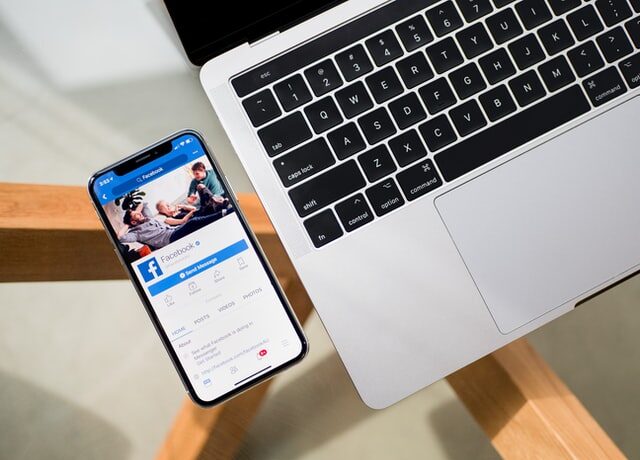Mobile app development is the creation of software that plans to run on mobile devices and is well-optimised to take advantage of those products’ unique features. Types of mobile apps that developers could create well include hybrid apps, native apps and HTML5 apps. The mobile app development business could grow a lot shorter.
If you are looking for a mobile application development company, Blurn. They offer various services related to app development for specific brands once they identify the requirements and goals of the brand. You can click on the contact us section and reach out to them to know more about mobile app development.
As mobile phones have become smart, mobile application development is an increasingly popular medium of software creation. Mobile apps have become an essential element of most businesses and revenues that are projected to go high and top in the upcoming years. The growing industry has attracted businesses from every corner of the marketplace as consumers detach themselves from desktop computers and turn to their mobile devices.

The creation of mobile apps has much of its roots when it comes to traditional software development. The result would be intended to utilise the unique features of mobile devices. Modern smartphones have NFC, Bluetooth, Gyroscopic sensors, cameras and GPS. They could be used easily for virtual or augmented reality, barcode scanning and many other features. Mobile apps should utilise the full range of smartphone features that are easier said than done.
With desktop PC software development, programmers should create an application that could operate on a minimum set of hardware. The same is applicable for mobile applications even though the hardware might vary in such an instance that is much more minimal. The hardware in smartphones and tablets does not match that of laptops and desktop computers. This means that mobile apps must be designed to show optimal performance.
If we consider an example, a gaming app would have limitations when it comes to graphical elements as there are less powerful graphical processors in mobile devices. At the same time, cloud computing is making it easier to accomplish Mobile gaming. Many players can connect their computers, phones and even consoles to cloud computing and play games.
Considerations for mobile app development
The issue of performance could be solved on any device and it would completely depend on developing an app natively on that particular device. This would mean designing the code specifically for the hardware on a particular device. For iOS devices, this would be quite easy as mobile developers only need versions of the app for iPhone and iPad to achieve universal usability. When it comes to Android devices, each smartphone or tablet runs on different hardware and has different versions of the operating system.
Types of mobile apps and programming languages
Just like desktop software, mobile apps are designed to use a wide range of programming languages and frameworks. The most popular operating systems such as IOS and Android have done a great job of standardizing the type of mobile app development that is available to programmers. However, apps might still vary. Take a look at some of the mobile app types.
- Native apps
Created for a specific platform, native apps make use of the software development tools and languages that are supported by those operating systems (iOS or Android). iOS makes use of Objective-C and Xcode while Android makes use of Eclipse and Java. Developers prefer to use native apps due to their ability to utilize a device’s full potential. With the arrival of smart home devices, developers are making unique applications that could integrate things like wearables, the Internet of Things, sensors and smart screens for personalized experiences. Development for each platform is a costly and time-consuming process that does not work for all businesses.
- HTML5 apps
HTML5, JavaScript and CSS are near-universal standards of web technologies. It takes a write once run anywhere approach to mobile development. Apps developed in this framework are compatible with many platforms and need only minimal changes to make sure of complete functionality on each operating system. HTML5 apps can send desktop notifications and trigger interactions through email and other methods. Don’t discount web apps’ usability but you have to keep in mind that consumers are more likely to use a native app.
- Hybrid apps
These apps mainly focus on the creation of a container developed in the native system which makes it possible to embed an HTML5 app within it. It allows the apps to make use of the unique and diverse elements of each native system. Before you create a branded app, you should consider utilizing the existing apps for greater impact. If you use mobile-focused marketing on services such as Facebook and Google Maps, you could drive traffic to both the website and brick and mortar locations.
Software Development Kits
Mobile app development needs access to Software development kits (SDKs) that could provide a simulated mobile environment for programmers to design and test code. Creating an app would not require the complete use of these kits. Developers create mobile games with the help of Unity and then use Android SDK to make sure that its deliverability is possible on mobile devices. Developing apps for iOS would require a paid iOS developer licence whereas the Android SDK is freely available to users.

iOS and Android have similar mobile market shares but developing for Apple is much easier and you don’t have to worry about a wide range of devices from different manufacturers. Whichever operating system you choose, there are barriers to entry.
App development process
Regardless of the type of project, you would wish to bring to life, the app development process has various important steps. Breaking the project down into such simple steps would help you develop your app efficiently and quickly.
- Idea: When brainstorming app ideas, you could put some research into answering a few questions about them. Know about the problem an app could solve, the target audience, the importance of features and if competitors have similar apps.
- Design: You can design a user interface to navigate the user through the app and make it easy to follow.
- Development: At this stage, you could write the code for your app, develop it and start preliminary testing.
- Testing: By testing the app, you could determine its quality, malfunctions and how you could make more improvements.
- Launch: Once the app is bug-free and ready to go, you could publish it on marketplaces like Apple app Store and Google Play.
- Marketing: You can create a marketing strategy to get the users to download and give you feedback on how to improve user engagement.





